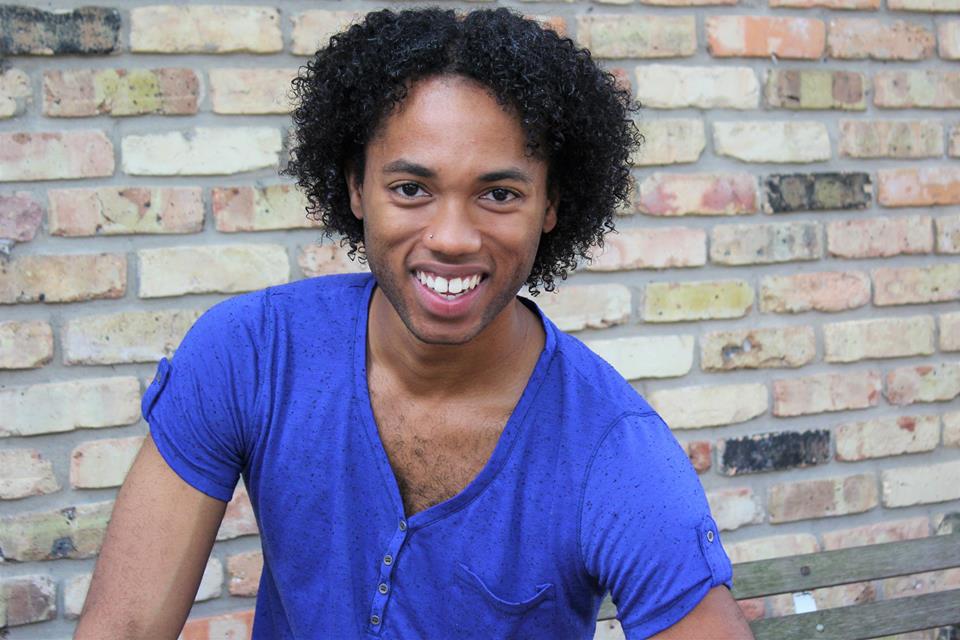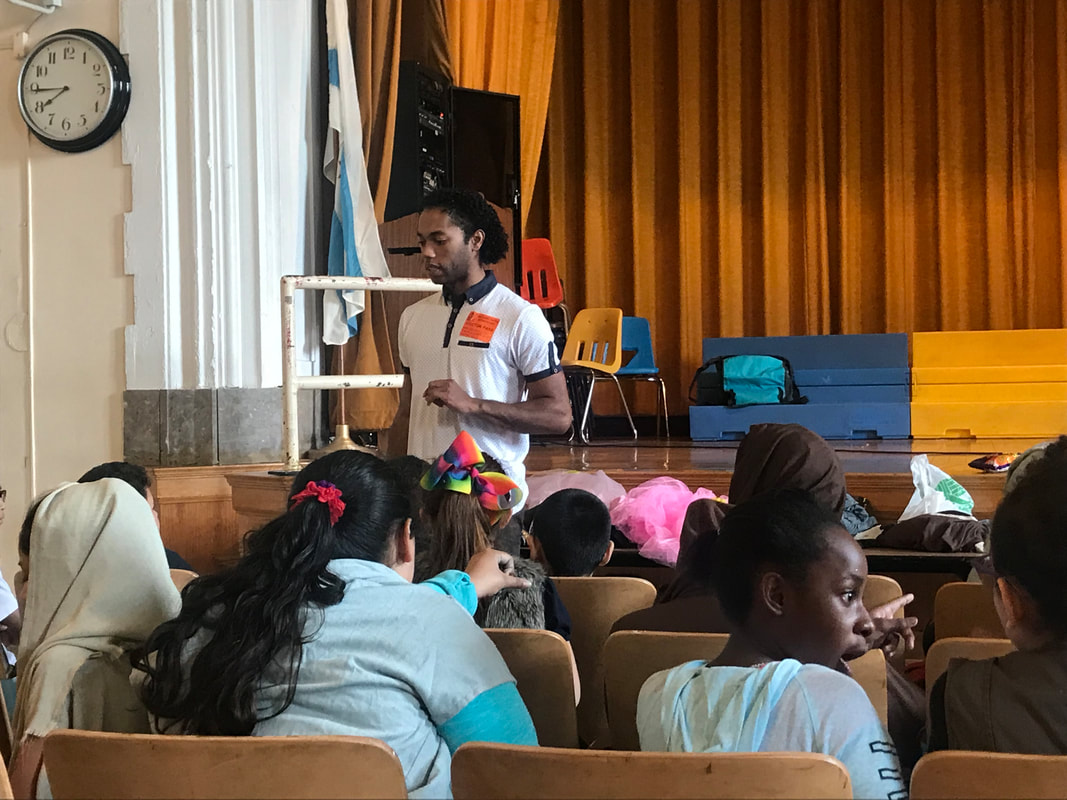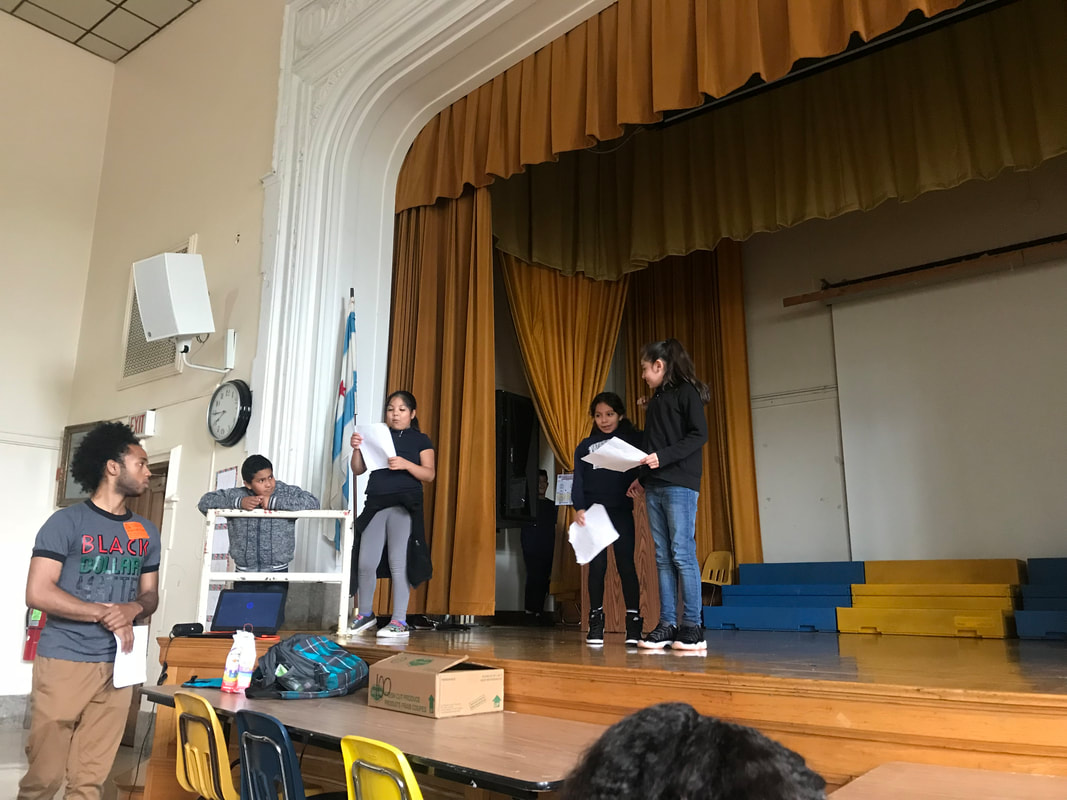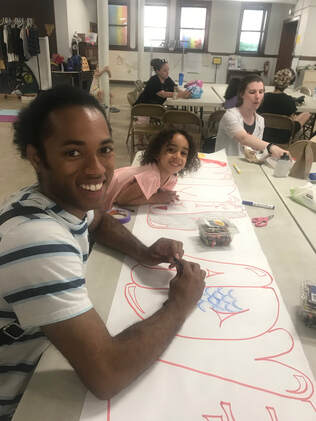 I am a Black person. I teach mostly Black and Brown kids. I enjoy teaching in schools where the kids look like me and where the kids can see that I look like them. It’s always been my goal to help do what I can for Black and Brown communities. I don’t want to create dancers out of all of these kids because I know that dancing is not what they all want to do as a career. However, I do want to create people who can work together. I want to create people who know how to communicate, create and build together. I’m fully aware of how many people outside of Black and Brown communities view these kids. They think they’re trouble-makers. They think they are violent. They think they are hopeless. I know this. This isn’t new to me. However, what I wasn’t expecting was hearing these type of negative things from my own students. One of my students said that Black kids are harder to teach than white kids. I brought that idea to another one of my classes and some of them agreed. They went on to say how white kids are more well behaved and organized. They said if the class was all white kids, they’d all listen and it’d be a completely different class. I was in complete shock. They really thought that the color of their skin determined their control of their body and mind. How do you respond to that? How do I, as a POC, look these kids in the eye and go about reversing this toxic mindset? It was absolutely heartbreaking but it did give me insight and clarity on why most of these kids acted the way they do. How can you fix your behavior if you believe because of the color of your skin that there’s no way to fix it? Why work hard to change what seems inevitable? It’s such a frustrating thing because of the way they think and the way they translate everything. Let’s not get confused, they are a rowdy bunch. They can’t keep still for more than a few seconds, they constantly talk and get bored real quick. They talk back, get attitudes and have to be told several times to do something before they listen. But they’re kids. What kids don’t act like that? So obviously, I have to be stern. I discipline them. I make sure I follow through on any consequences I say they’re going to have. For me, this is instilling good things in them, such as accountability and responsibility. For them, it’s Mr. Ben being mean or having an attitude or picking on me. On several occasions, I’ve tried explaining that I do what I do because I want them to succeed. I want to prove everyone wrong because these are good kids, great kids. When they trust you, they are so loyal to you and well-behaved. When you compliment them or tell them they had a good day, their faces beam. When they come together, do a dance or play a game, I see how happy and carefree they are, nothing makes me happier. These moments seem all too rare and far between. It’s tough and there are days I just want to give up. There are days I do give up and just have to stop class a few minutes early. These are my thoughts as a Black person teaching Black and Brown kids who look like me. They trust someone like me the most and it’s still a struggle, which gets me wondering “how do we break down these barriers when we look different than the kids we teach?” How do we go about breaking down stereotypes and mindsets that society puts on us and that we, in turn, put on ourselves? I genuinely wish I knew the answer but I’m grateful for that experience. I’m grateful that the kids felt comfortable enough with me to open up and share that information with me so I can figure out where to go from there. I have to find a way to allow them to see themselves as good, valuable and capable of change. I need to help them understand that the only thing limiting them is themselves, not their pigmentation. We all have control of our bodies, our minds and once we realize that, only then can we change ourselves and work together to progress collectively. Mr. Ben is a Teaching Artist with Chicago Danztheatre Ensemble. Mr. Ben in action at Yates School and CDE's Kids Project Summer Camp
502 Comments
|
AuthorWritten by the Executive Director, Ellyzabeth Adler, Artistic Director, Sara Maslanka and our many teaching artists Archives
June 2023
|



